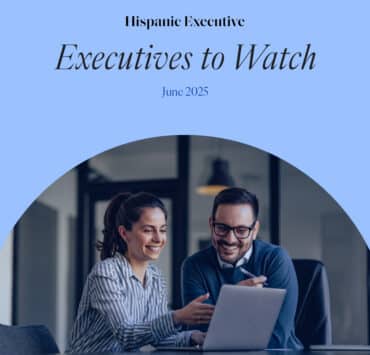|
Getting your Trinity Audio player ready...
|
The partnership between Federico Rubistein and Datos Claros is more than a decade old. Like Rubistein, DatosClaros has Argentinian roots and has expanded globally. Their shared origin and expertise give them insights and a strategic edge in an increasingly unpredictable economy.
To describe the moment we’re all in, he uses the term VUCA: volatility, uncertainty, complexity, and ambiguity. Though VUCA dates to the 1980s, it feels modern. VUCA isn’t just a theoretical framework. It’s embedded in his most trusted partnerships, such as the one he has with DatosClaros. Both Rubistein and the founders of DatosClaros grew up in a VUCA market.
“DatosClaros was born in uncertainty,” says Natalia Gitelman, director of marketing research at DatosClaros. “The massive financial crises of 2001 [are] what helped bring this company to life. I studied this culture of uncertainty as much as I studied marketing and the economy. It’s not our only area of expertise, but we inherently understand unstable conditions in a way that many others do not.”

With the worldwide economy in flux, a shift in global economic power, and changing norms, companies need data and deeper insights into customer behavior. Rubistein says that organizations like DatosClaros and the growing prevalence of revenue management roles are some of the market’s response to these changing circumstances.
“Inflation is not going away, companies still have cost pressures, and now tariffs came into play, exacerbating them,” he says. “To protect profitability, companies need to be smarter about pricing. It may not be only about increasing prices, but instead about pricing architecture and positioning, or how to be more effective when to providing discounts. This new context, especially for developed markets, wasn’t a reality that businesses were facing before the pandemic. Now they are.”
“If you don’t have data and insights on all of those issues and build the capabilities to address them, your company can fall behind significantly.”
Federico Rubistein
They agree that tomorrow’s most successful companies will realize the need to act on these new realities today. It’s not only about aligning with partners like DatosClaros or installing a chief revenue officer; the strategy must be much broader and aligned.
But the VP and his partners have a proven history of pricing success across disparate products. “I need a global player that can adapt to any product, region, and country,” Rubistein says. “We have done projects together for beer, pumps, and brake pads, and I know they’ve done successful projects for CPG, retail, and financial services as well. They approach these all with the same level of insight, understanding, and excellence. It’s remarkable.”
That consistency is grounded in DatosClaros’ masterful command of data. The firm has access to a wide array of global databases but also builds custom questionnaires and surveys when it needs more specific and nuanced data.
“DatosClaros was born in uncertainty. The massive financial crises of 2001 [are] what helped bring this company to life. I studied this culture of uncertainty as much as I studied marketing and the economy. It’s not our only area of expertise, but we inherently understand unstable conditions in a way that many others do not.”
Natalia Gitelman
Gitelman adds that DatosClaros includes teammates from Latin America, the United States, and other regions with strengths in areas like political science, sociology, economics, and more traditional digital marketing. That interdisciplinary insight has proved invaluable, especially when they worked together in the launch of a new product, VIDAR, a severe duty motor with embedded variable speed intelligence.
“We had an innovative product with no market reference,” Rubistein explains. “DatosClaros knew exactly what to do. To be able to take a product and figure out which attributes are the most valued and how to price it is a difficult prospect, but they delivered.”
Part of the reason Rubistein has maintained a working relationship with DatosClaros across career moves is that it offers both a personal touch and impressive depth of knowledge. It’s “boutique” in the sense that he always knows who he’s speaking with—and he always knows he’s talking with someone who’s exceptionally knowledgeable about his project.
“That’s just part of their DNA,” he says. “That means other global companies in the marketplace trust them the same way I do.”
But vendors are only as effective as the leaders who know how to partner with them effectively. Rubistein says the role of revenue officers continues to expand. Those of yesteryear, at least in developed markets, didn’t need to practice pricing elasticity, discount effectiveness, and promotional return on investments. Those concepts were taken for granted or the context didn’t demand them. But those times have changed.
“If you don’t have data and insights on all of those issues and build the capabilities to address them, your company can fall behind significantly,” Rubistein says. “Probably there will continue to be conflicts, pandemics, and disruptions that affect the world, so a 2 percent flat price increase across the board is no longer a viable option. You have to be more strategic and adaptable.”
Rubistein and Gitelman agree that though this may sound alarming, forward-looking organizations should look at it as an opportunity. Times are getting more complex, and businesses will have to evolve and adapt to succeed.

